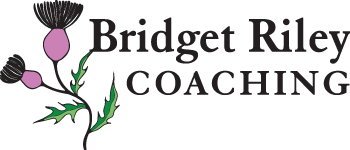
Effective communication skills and conflict resolution strategies are important for a smooth transition for both parties when navigating divorce. These skills are not just about winning arguments but about finding the best solutions that respect the needs and rights of the parties on both sides of the issue.
Bridget Riley Coaching is based in Point Pleasant, New Jersey and specializes in supporting women through this critical phase of their lives. With a unique blend of divorce and wellness coaching, Bridget Riley leverages her expertise to help clients build strong communication skills and navigate conflict with grace.
The Importance of Communication and Conflict Resolution During Divorce
Divorce is challenging enough without the added strain of poor communication and unresolved conflict. In emotionally charged situations, effective communication can be incredibly difficult to achieve. Emotions like anger, resentment, and sorrow often cloud judgment and hinder the ability to listen and respond thoughtfully.
Poor communication and unresolved conflict make the tension between both parties even worse, causing prolonged legal battles and emotional distress. The absence of clear dialogue and mutual understanding can be a significant barrier to reaching a fair and amicable solution. When communication breaks down, the divorce process becomes more cumbersome and emotionally taxing for everyone involved.
Effective communication and conflict resolution strategies offer numerous benefits. They provide a framework for smoother negotiations and better outcomes, helping each party to understand each other’s needs and perspectives. By employing strategies such as active listening and empathy, divorcing couples can reach mutually beneficial agreements more efficiently. Exploring every option and working collaboratively can pave the way for a more harmonious resolution.
Ultimately, prioritizing communication and conflict resolution during divorce makes the process less painful and sets the stage for a healthier post-divorce relationship. When both parties commit to understanding and resolving their differences, they create opportunities for more positive and constructive interactions in the future.
Improving Negotiation Skills During Divorce
Negotiation in the context of divorce involves discussions between both parties to reach agreements about important issues including asset division, child custody, and financial support. Effective negotiation skills can help minimize conflict and achieve fair outcomes that respect the needs of everyone involved.
Key Negotiation Skills
Patience and Maintaining Calm Under Pressure
Divorce negotiations can be stressful and emotional. Patience and the ability to stay calm can prevent discussions from escalating into arguments, making it easier to find a workable solution.
Active Listening
In emotionally charged divorce negotiations, actively listening to what the other party is saying can be a powerful tool. It helps build trust and shows that you are genuinely interested in understanding their perspective.

Empathy and Understanding the Other Party’s Perspective
Empathy involves putting yourself in the other person’s shoes. Understanding their feelings and perspectives can lead to more amicable solutions, which is particularly important when children and long-term relationships are involved.
Clear and Assertive Communication
Being clear and assertive about your needs and wants without being aggressive can help set the tone for constructive discussions. This ensures that both parties know where they stand and can negotiate more effectively.
Practical Tips for Improving Negotiation Skills:
Setting Clear Goals and Priorities
Before entering negotiations, it’s essential to know what you want to achieve. Setting clear goals and priorities helps you stay focused and ensures you don’t overlook important aspects of your post-marriage life.
Being Prepared with Relevant Information
Having all the necessary information at your fingertips can make negotiations smoother and more efficient. This includes financial documents, legal papers, and any other relevant data that may influence the discussions.
Practicing Compromise and Flexibility
While it’s important to have clear goals, being willing to compromise is equally crucial. Flexibility allows both parties to find middle ground, which is often necessary for resolving complex issues in a way that benefits everyone involved.
Negotiation is a vital skill during divorce, impacting not just the immediate outcomes but also the long-term relationship between the ex-partners and their families. By focusing on developing these skills, people can navigate the challenges of divorce more effectively and find solutions that work for all parties involved.
Role-Playing Scenarios with a Divorce Coach
Role-playing is a powerful coaching technique often used in divorce counseling to help individuals prepare for real-life interactions and negotiations. By simulating typical divorce-related scenarios with Bridget Riley as your divorce coach, you can practice your responses and refine your communication skills in a safe and controlled environment. This technique is especially helpful when dealing with complex emotions during divorce proceedings.
Role-playing scenarios offer so many benefits. A big advantage is gaining confidence in communication. Practicing these skills helps you articulate your needs and concerns effectively, which is the foundation for successful negotiation and conflict resolution. Role-playing also allows you to rehearse responses to various situations, from heated discussions to more amicable negotiations, preparing them for the unpredictability of real-life interactions.
Another significant benefit is identifying and addressing emotional triggers. Through role-playing, you can recognize emotional triggers and learn how to manage them. Addressing these triggers in a controlled setting enables them to develop strategies to maintain composure and focus during actual divorce discussions.

Common role-playing scenarios with a divorce coach include negotiating custody arrangements. Parents need to articulate their concerns and preferences clearly, ensuring that the best interests of the children are always prioritized.
Discussing financial settlements is another frequent scenario. Financial discussions can often become contentious, and role-playing these scenarios allows you to practice presenting your financial needs and compromises effectively, ensuring a fair and transparent settlement process.
Effective communication with an ex-spouse is important for successful co-parenting. Through role-playing, you can practice maintaining a respectful and cooperative tone, which is the key to fostering a positive co-parenting relationship.
Role-playing scenarios with a divorce coach provides valuable practice and preparation for handline complex issues that can feel overwhelming during divorce. By engaging in these exercises, you can build the skills and confidence needed to handle real-life situations with grace and effectiveness.
Finding Solutions on Common Ground
Navigating the challenges of divorce requires more than just legal knowledge; it demands the development of effective negotiation skills and emotional resilience. By focusing on clear communication, empathy, and preparedness, individuals can work towards finding solutions that respect everyone’s needs.
Role-playing scenarios with a Bridget Riley as your divorce coach can further enhance these capabilities, providing a safe environment to explore different approaches and methods.



